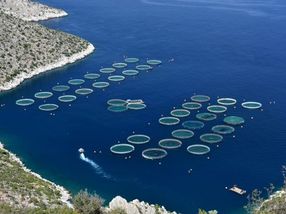Pacific nations tax unhealthy foods to tackle NCD crisis
Pacific Island governments are increasingly imposing taxes on unhealthy foods as they battle a non-communicable disease crisis, a New Zealand study shows.

Dr Andrea Teng
University of Otago
The research, led by the University of Otago, Wellington, found that since 2000, a quarter of the 22 Pacific Island countries and territories studied had introduced taxes targeting unhealthy foods, a strategy in line with recommendations from the World Health Organization.
The study of food taxation policies over the 20 years to 2020 is published in the international journal Public Health Nutrition.
Senior Research Fellow, Dr Andrea Teng, from the University’s Department of Public Health, says five of the countries in the study introduced new excise taxes during the period, while 14 made changes to tariffs on imported foods. Processed foods, sugar, fatty meats and salt were the main targets of the taxes. Sugar-sweetened drink taxes were not included in the research, but have also been widely implemented in small island states.
Dr Teng says there were a total of 279 taxes identified by food group, of which 15 per cent were excise taxes targeting unhealthy foods, and 85 per cent were import tariffs.
“Some excise taxes are significant, ranging from up to eight per cent in Samoa to 22 per cent in New Caledonia and up to TOP 5/kg in Tonga (US$2.10), CFP 120/kg in French Polynesia (US$1.10) and VT 20/kg in Vanuatu (US$0.17). French Polynesia, for example, has applied a tax to foods such as biscuits, ice cream, jams and chocolate based on their sugar content.
“Taxes like these are an important tool in addressing the food environment and the rising trend of non-communicable diseases.”
Six of the countries, Fiji, French Polynesia, New Caledonia, Samoa, Tonga and Vanuatu applied both excise taxes and import tariffs to food products. The Cook Islands, the Federated States of Micronesia, the Marshall Islands, Nauru, Niue, Papua New Guinea, the Solomon Islands, and Wallis and Futuna used only import tariffs, while American Samoa, the Northern Mariana Islands, Guam, Kiribati, Palau, the Pitcairn Islands, Tokelau and Tuvalu had no identified food tax policies.
Dr Teng says governments in the region are increasingly recognising that dietary policies are a crucial way of addressing high levels of chronic diseases.
“These measures promote healthier food choices, and can improve people’s health.”
But, she says, food taxes need to be applied to unhealthy ingredients in a systematic way to make sure they are as effective as possible.
“Ensuring taxes are based on the level of sugar, fat and salt in foods is a really effective way of encouraging producers to reduce the amount of unhealthy ingredients in products, without placing a high tax burden on consumers.”
Most read news
Topics
Organizations
Other news from the department politics & laws

Get the food & beverage industry in your inbox
By submitting this form you agree that LUMITOS AG will send you the newsletter(s) selected above by email. Your data will not be passed on to third parties. Your data will be stored and processed in accordance with our data protection regulations. LUMITOS may contact you by email for the purpose of advertising or market and opinion surveys. You can revoke your consent at any time without giving reasons to LUMITOS AG, Ernst-Augustin-Str. 2, 12489 Berlin, Germany or by e-mail at revoke@lumitos.com with effect for the future. In addition, each email contains a link to unsubscribe from the corresponding newsletter.





























































